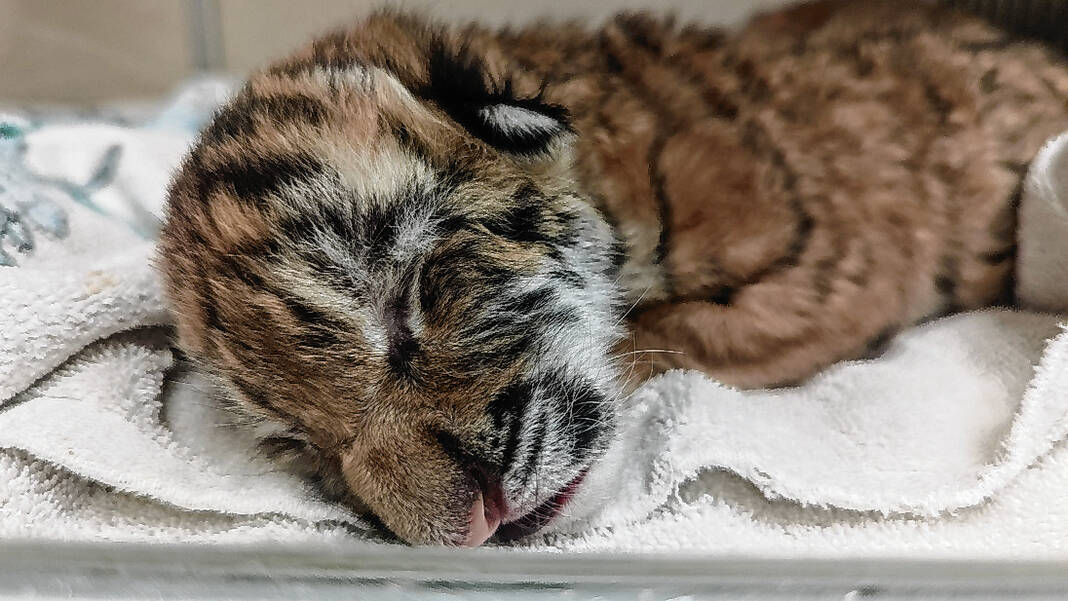A local college student continuing his recovery from a traumatic brain injury is embarking on an ambitious fundraising effort to help others in the same situation.
Cameron Fathauer, 19, has started an online fundraising effort on GoFundMe to create a nonprofit organization, The Voice of TBI.
A mission statement that Fathauer wrote for his start-up focuses on helping people with brain injuries look beyond their disability.
It says the organization will “educate and equip the traumatically brain injured with recovery resources, and thereby empower them to see beyond their injury and achieve the unimaginable success that is uniquely available to them and them alone.”
[sc:text-divider text-divider-title=”Story continues below gallery” ]
The organization would become an information and resource zone about TBI, including discussion boards, live chat sessions and a place where people in recovery can learn more about TBI, Fathauer said. Doctors, counselors, psychologists and survivors will contribute to the discussion and provide resources to help patients learn about treatment options that are available.
Fathauer and two friends — Josh Speidel, a second-year student at the University of Vermont, and Levi Sallee, an incoming senior at Columbus Christian School — are all continuing to recover from traumatic brain injury.
Fathauer said he has learned through his experience that not all patients have the support and necessary resources to maximize their recovery.
His injury, although categorized as a diffuse axonal brain injury as were the injuries of Speidel and Sallee, was different in that his treatment involved a craniotomy and replacing part of his skill with a prosthetic.
“People with a severe injury like mine do not typically live an independent, ordinary lifestyle — if they happen to survive at all,” Fathauer wrote about his injury on the gofundme site. “The doctors stated I would not walk, talk or think the same ever again. My estimated mental capacity was that of a sixth grader for the rest of my life.”
Fathauer said the doctors were correct in a temporary sense — because the previous tasks that had required no mental effort before his accident — talking, simple math or brushing his teeth, now became grueling labors that required patience and persistence.
On the GoFundMe site, Fathauer is attempting to raise $10,000 to help fund the website, resources for monthly meetings, money to compensate guest speakers and start-up costs. So far, the account has $475 from nine people, an average donation of about $50 a person.
Life-changing experience
Part of Fathauer’s recovery process has been to find that uniqueness in his life now — a journey that has included preparing to graduate from Southern Baptist Theological Seminary next May with a bachelor’s degree in humanities, achieving an LSAT score that allows him to apply to law school and marrying the love of his life, Chelsea. He and Chelsea were engaged when he was injured on Sept. 18, 2015.
Looking back on the past two years, he said he could not have imagined that his life would be where it is today.
A Columbus North senior at the time, Fathauer was skateboarding at his home on Marilyn Street off Rocky Ford Road when he was struck by a car as he left his driveway, police reported at the time.
“No one really knows what happened,” he said. “I think I was on the road — I don’t remember anything about it. Things just went blank.”
He was transported by Lifeline helicopter to IU Health Methodist Hospital and was in critical condition there as his recovery began.
He underwent a craniotomy to remove about half his skull, some of which was already missing from the accident, he said.
Fathauer’s brain injury was so severe that when doctors did an MRI about two weeks after the accident, they warned the family that damage extended to his brain stem and there was a chance that he might not regain consciousness.
A high-level, severe diffuse axonal brain injury involves the tearing of the brain’s long connecting nerve fibers that happens when the brain is injured as it shifts and rotates inside the skull.
But after he did wake up, he faced predictions from doctors that weren’t optimistic, his statement about The Voice of TBI states.
“Because of your brain injury, you will not be able to (FILL IN THE BLANK),” became Fathauer’s new life statement from those involved in his recovery, he said.
Doctors used 3D printing technology to craft a new skull for Fathauer, who wore a helmet during his recovery for protection. During six-day-a-week rehabilitation sessions, he learned basic life skills, including how to talk and walk. He started out with a walker to gain mobility, later using a gait-belt and eventually began walking unassisted.
By October 30, 2015, when he was discharged from the hospital, Fathauer described the transition as sort of like falling off the face of the earth. Even though a fairly rapid recovery allowed him to blend back into his life, get married and start college, he realized something was different.
“But just because I looked good on the outer level didn’t mean I wasn’t struggling big time inside,” he said.
Fathauer’s insecurity and onset of depression stemmed from his cranial scars, improving-but-still-struggling communication skills and how others might be perceiving impairment during interaction with him, he said.
“I was afraid that every time I would do something wrong, someone would attribute it to my injury,” he said. “Speech was my biggest insecurity.”
Speaking at a seminar about the Christian faith, Fathauer remembers that normally he would have been nervous before speaking to a large group of people. But his brain injury somehow changed his emotional processing and he felt nothing — no jitters — as he spoke.
However, that worried him.
“I was thinking, I don’t think I’m feeling the things I should,” he said.
And then he learned something that people who worked in his recovery had been trying to tell him.
“The brain is the most humble part of the body,” he said. “It puts everything else first and works itself last.”
What that means, Fathauer said, is progress in recovery is slow because the only time the brain ever rests is when a person is asleep.
Cameron and Chelsea got married six months after the accident and Fathauer credits his wife with helping him overcome the depression that dogged him during his recovery and for helping him find the resources he needed for treatment.
“She made me aware of what was out there for help, which makes me want to make other people aware of the help that is available,” he said.
Chelsea Fathauer, 21, said her husband’s recover is in many ways miraculous. A nursing student who plans to work in neuro intensive care, she also attributes his recovery to immediate care he received after the accident and the ongoing work of nurses and doctors in Indianapolis.
There was a point about two weeks after the accident that Cameron remained in a coma, and doctors warned family members that he was declining and that his future quality of life could be severely hampered if things didn’t turn around soon.
“We were not expecting this,” she said of her husband’s recovery, which turned for the better after about another week and eventually resulted in him waking up and seeing his then-fiance in the hospital room.
“I walked in and I hugged him and he said, ‘I want to love you better.’ And when I said he loved me perfectly, he said, ‘Not good enough, I have to do better,’ ” she said, laughing at the memory. “He says that to me a lot.”
She attributed his ongoing recovery to her husband’s hard work and his dedication to the idea of the nonprofit helping others.
Nonprofit start-up
“Cameron has met several people, and he knows the first six months to two years are the most important time in the recovery, and they are sitting at home and not progressing,” Chelsea Fathauer said. “A lot of people just don’t know what’s out there to help.”
One of the reasons for establishing the nonprofit is to help traumatic brain injury patients through what Fathauer describes as the psychological change caused by the physiological change in their bodies during recovery.
“The suicide rate for TMI patients is high. Because when your brain is injured, you are talking about an organ that controls the entire body,” he said.
Fathauer has been interning with a New Albany attorney, Matt Schad, and talks with Schad’s clients who have a traumatic brain injury. The law firm assisted Fathauer with a settlement in his case. Several of Schad’s clients are interested in Fathauer’s project and are planning on participating, he said.
The idea for the nonprofit came out of the number of patients he has met who don’t know of the opportunities that are available to help those who are struggling.
“I want to inform the uninformed about their injury,” he said. “There are a lot of aspects about TBI the community doesn’t understand and the patient doesn’t understand — about disability, testing, accommodation, therapy, how to have a social life.”
Fathauer hopes the nonprofit can become an online and physical space where traumatic brain injury patients can talk with other patients, ask questions, find fellowship and bond.
He is planning to blog on a web site for the group and hopes to have a video series about TBI working with Collin Ebel, Columbus, of Ebel Media. Ebel will be videotaping Fathauer’s presentations for the web site.
“I want to put a voice to the TBI issue in a visual way,” he said.
The nonprofit will also sponsor monthly meetings with the help of Schad’s law firm, where guest speakers will meet at the New Albany law firm with TBI patients to offer advice and hope for the future.
For example, during the meetings, patients will be advised to have a goal, a personal goal, and set it for a ways down the road, he said.
Fathauer hopes to have every TBI patient remember that in the same way each might feel they lost something with the injury, they also have to remember that something has also been given.
“I want people to remember that give and take,” he said. “What have you been given with what has been taken from you? What is it that has come to you and replaced what you lost? That philosophy, something’s been taken, something’s been given, that’s what I want to get across.”
[sc:pullout-title pullout-title=”How to donate” ][sc:pullout-text-begin]
If you are interested in helping Cameron Fathauer raise $10,000 to establish The Voice of TBI nonprofit, visit
gofundme.com/gn-camerons-medical-fund
[sc:pullout-text-end][sc:pullout-title pullout-title=”How to connect” ][sc:pullout-text-begin]
For additional information, or to offer assistance or resources to The Voice of TBI, email Cameron Fathauer at [email protected].
[sc:pullout-text-end][sc:pullout-title pullout-title=”Pull Quote” ][sc:pullout-text-begin]
“No one really knows what happened. I think I was on the road — I don’t remember anything about it. Things just went blank.”
— Cameron Fathauer on traumatic brain injury incident
[sc:pullout-text-end]





